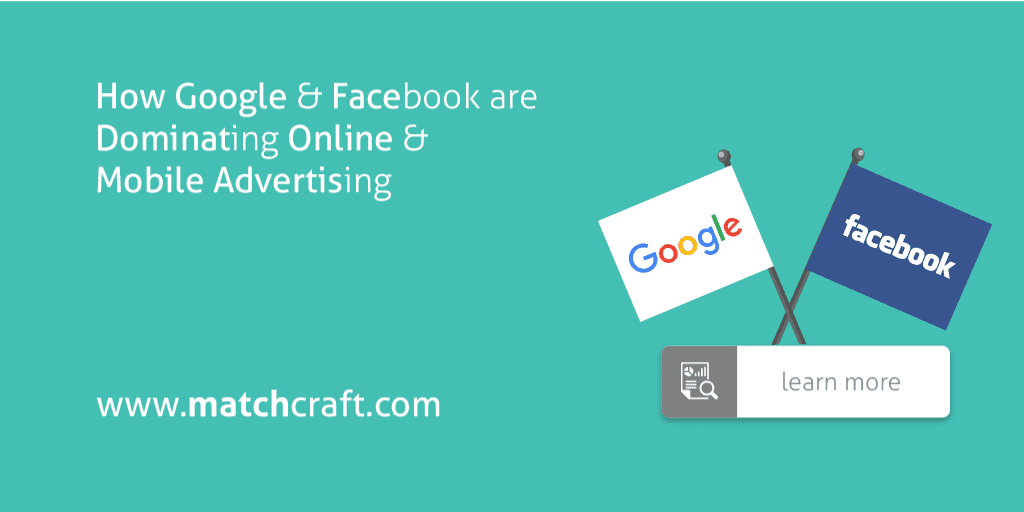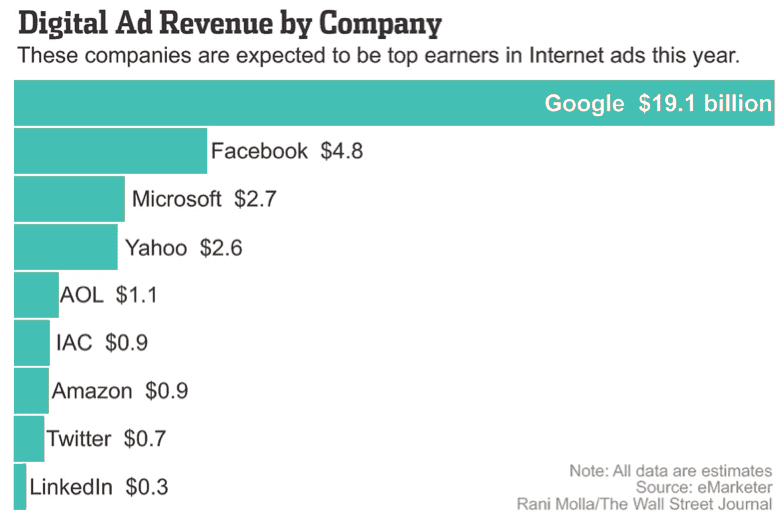Businesses seeking to carve a bigger piece of the online advertising pie – or get a first sliver – might be intimidated by how companies such as Google and Facebook dominate in the arena.
While the tech giants are certainly impressive, they don’t actually want to be the villains in this story. Instead of becoming adversaries to businesses everywhere, the giants offer some good opportunities for SMBs.
First & Second in Digital Advertising Dollars
In early 2015, Google and Facebook provided a one-two punch in digital advertising. Between the two brands, 49 percent of digital advertising dollars in the United States were accounted for. The two companies also accounted for 52 percent of mobile ad sales. The remaining companies rounding out the top five – Yahoo, Microsoft and AOL – weren’t keeping a strong grip on what market share they had left.
One reason Facebook and Google continue to dominate online advertising is that brands moving into online markets want to advertise with companies they know. And everyone knows the big two.
At a time when internet advertising is growing rapidly, diversity in advertising is not a favored tactic.
An RBC Capital Markets survey found that 61 percent of businesses planned to increase spending on Facebook and just over half intended to increase Google advertising budgets. In contrast, only 43 percent of online advertisers planned to increase YouTube spending. Just over a third planned to bump budgets for Twitter advertising.
Local Advertising is Growing
While Google and Facebook are international monoliths of online advertising, they also offer some of the best tools for local advertisers.
New updates to Google’s local search marketing puts ads front and center, boosting chances for businesses that previously struggled with local SEO. Purchasing local advertisement puts your link in front of geo-appropriate browsers, possibly increasing local leads and conversions.
Facebook offers similar advantages to regional and local businesses. Advertisers experience cost-efficiency using Facebook’s local awareness ads because ads are only paid for and presented to users who appear to be in the area surrounding the business. Ads can be targeted locally and by gender and age to increase engagement and conversion rates.
If you’re looking to get into online advertising markets or increase your brand presence online, you almost can’t avoid advertising with Google and Facebook. Although, with so much ad revenue being poured into the platforms, little fish, big pond syndrome is likely. Consider spreading your advertising budget between big hitters like Facebook and Google and platforms that deliver niche audiences such as Twitter or Yelp.

